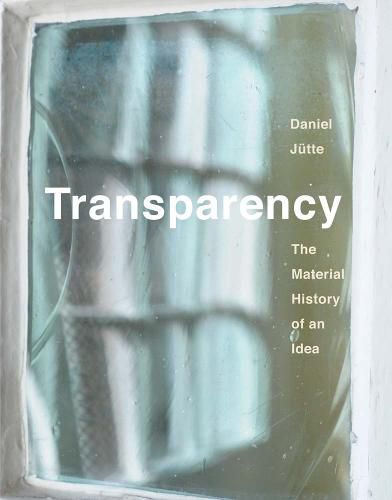Readings Newsletter
Become a Readings Member to make your shopping experience even easier.
Sign in or sign up for free!
You’re not far away from qualifying for FREE standard shipping within Australia
You’ve qualified for FREE standard shipping within Australia
The cart is loading…






A wide-ranging illustrated history of transparency as told through the evolution of the glass window
Transparency is a mantra of our day. It is key to the Western understanding of a liberal society. We expect transparency from, for instance, political institutions, corporations, and the media. But how did it become such a powerful-and global-idea?
From ancient glass to Apple’s corporate headquarters, this book is the first to probe how Western people have experienced, conceptualized, and evaluated transparency. Daniel Jutte argues that the experience of transparency has been inextricably linked to one element of Western architecture: the glass window.
Windows are meant to be unnoticed. Yet a historical perspective reveals the role that glass has played in shaping how we see and interpret the world. A seemingly pure material, glass has been endowed, throughout history, with political, social, and cultural meaning, in manifold and sometimes conflicting ways. At the same time, Jutte raises questions about the future of vitreous transparency-its costs in terms of visual privacy but also its ecological price tag in an age of accelerating climate change.
$9.00 standard shipping within Australia
FREE standard shipping within Australia for orders over $100.00
Express & International shipping calculated at checkout
A wide-ranging illustrated history of transparency as told through the evolution of the glass window
Transparency is a mantra of our day. It is key to the Western understanding of a liberal society. We expect transparency from, for instance, political institutions, corporations, and the media. But how did it become such a powerful-and global-idea?
From ancient glass to Apple’s corporate headquarters, this book is the first to probe how Western people have experienced, conceptualized, and evaluated transparency. Daniel Jutte argues that the experience of transparency has been inextricably linked to one element of Western architecture: the glass window.
Windows are meant to be unnoticed. Yet a historical perspective reveals the role that glass has played in shaping how we see and interpret the world. A seemingly pure material, glass has been endowed, throughout history, with political, social, and cultural meaning, in manifold and sometimes conflicting ways. At the same time, Jutte raises questions about the future of vitreous transparency-its costs in terms of visual privacy but also its ecological price tag in an age of accelerating climate change.